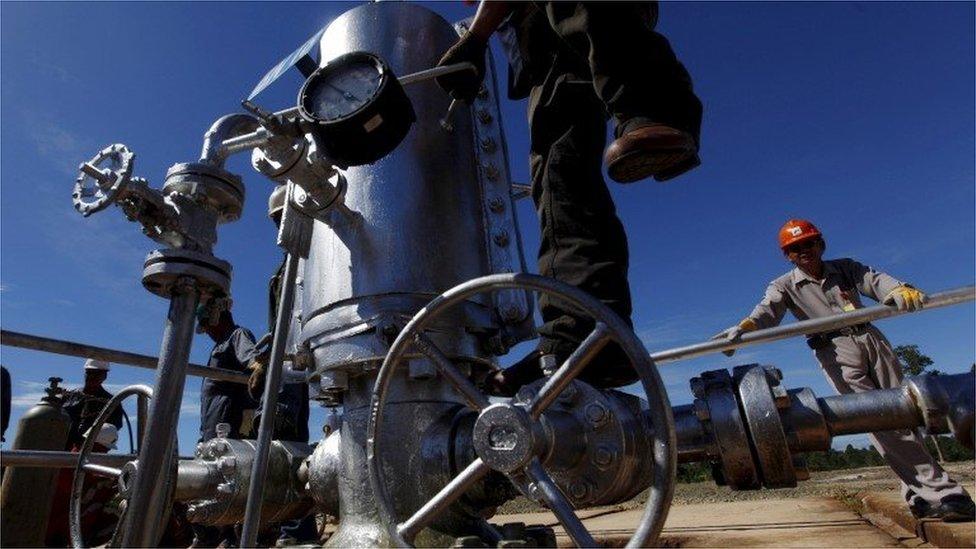Oil and gold prices rise on Middle East tensions
- Published

Oil prices have jumped as worsening relations between Saudi Arabia and Iran raised concerns about possible supply disruptions.
Brent crude prices rose more than 3% on Monday, before easing to $38.10 a barrel, still up about 2%.
The price of US crude was up more than 2% to $37.81 a barrel.
Share markets were also rattled by rising tensions after Saudi Arabia executed a Shia cleric, and the price of gold rose 1%.
"With increased geopolitical tensions between Saudi Arabia and Iran, the market has put a premium on prices just when markets opened (in 2016)," brokerage Phillip Futures said in a note.
Saudi Arabia has cut diplomatic ties with Iran. Protesters in Tehran ransacked the Saudi embassy following the execution of Sheikh Nimr al-Nimr.
Saudi Foreign Minister Adel al-Jubeir said Iranian diplomats had 48 hours to leave the country. Iran's supreme leader warned Saudi Arabia it would face "quick consequences" for the execution.
Fearing further upheaval in the already volatile Middle East, the US has urged regional leaders to try to ease tensions.
Despite the oil price rise, Bernard Aw, market strategist at IG Markets in Singapore, said global crude oversupply would continue to weigh on prices over the longer term.
"Unless we see a convincing drop in oil output from these two nations, and the broader oil-producing community, the supply glut issue will persist, which means oil prices would remain under pressure for a longer period," he told the AFP news agency.
Oil prices are down by two-thirds since mid-2014, with analysts estimating that producers are pumping between 0.5 million and 2 million barrels of oil every day in excess of demand.
China woes
Worries about the impact of Middle East tensions were underlined in the gold price, which rose more than 1% on Monday to $1,070.20 an ounce.
Gold is frequently seen as an alternative investment during times of geopolitical and financial uncertainties. The gold price lost 10% last year.
Another traditional haven is the Swiss franc, which gained about 0.8% against both the dollar and the euro in early trading on Monday.
In Asia, share markets fell heavily, driven lower by a manufacturing survey that pointed to more bad news for the Chinese economy.
The Caixin/Markit purchasing managers' index (PMI) slipped to 48.2 in December, marking the 10th consecutive month of shrinking factory activity in the sector. A reading below 50 indicated contraction.
- Published4 January 2016
